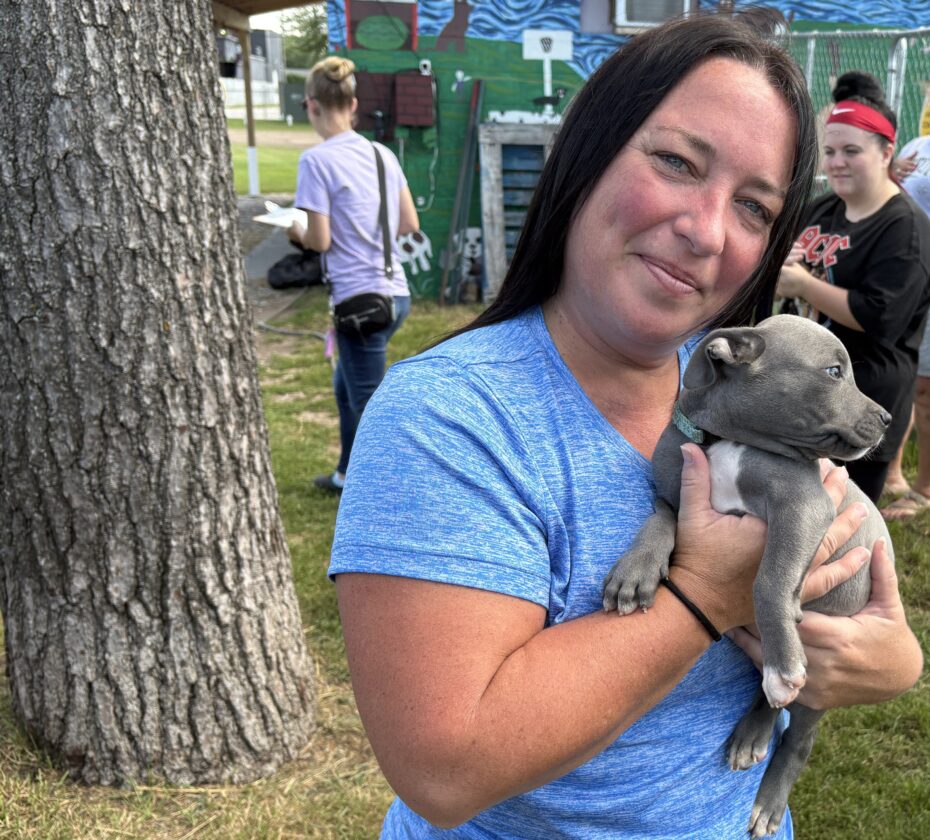Registered microchipped pets lead to reunification

News Photo by Kayla Wikaryasz On Saturday, Missy Marwede is seen at a puppy meet and greet event at the Alpena County Sheriff Animal Control Shelter. She is holding one of several puppies that were up for adoption at the shelter.
ALPENA — The Michigan Department of Agriculture and Rural Development (MDARD) and Michelle Reid, animal control officer, encourage pet owners to get their pets microchipped and update microchip information to ensure reunification if a pet gets lost.
Reid told The News that most pet owners think that microchips act like GPS devices, though they are a bit different.
“Microchips are very useful because it’s a permanent form of ID,” Reid said. “It’s not a GPS. I know some people think it’s a GPS, but it’s not. It’s like a rice-sized RFID.”
Reid explained that RFID stands for radio frequency identification device. She said that microchips are placed under the skin of pets, usually between the shoulder blades. They can be easily scanned by shelter employees and volunteers, allowing them to search a database for carrier and owner information.
The Alpena County Sheriff Animal Control Shelter includes a microchipping fee in their adoption costs, as well as low-cost microchipping services for the community. Reid said that community members can get their pet microchipped for $25 at the shelter.
“Most shelters ensure that their dogs and cats are microchipped prior to adoption,” Reid said.
Though microchips are a useful tool, Reid said that reunification through microchipping has about a 50% success rate.
“A microchip is only as useful as the information tied to it,” Reid said. “The chip needs to be registered … and then sometimes we get chips that haven’t been transferred to new owners or the owner did not update their address or their phone number.”
Reid said that the shelter can trace a microchip back to whichever organization or person purchased the microchip originally, but that doesn’t always result in a reunification success story.
“They can give us the information as to who purchased the chip, what organization or what vet clinic or shelter had inserted the chip,” Reid explained. “And we can call them and hope we get some information, which usually does not pan out.”
In a recent press release, MDARD states that pet owners should not only work with their veterinarian to microchip their pets, but also to ensure that microchips are registered and contact information attached is correct.
“Having a chip is the most permanent way to identify your pet, and it provides an almost universal way for your pet to get back home if they are lost or stolen,” Dr. Nora Wineland, state veterinarian, said in the release.
According to the release, the American Veterinary Medical Association (AVMA) reports that 10 million dogs and cats are lost or stolen in the U.S. every year. The AVMA also reports microchipped dogs are more than twice as likely to be returned to their owners and microchipped cats are 20 times more likely to be returned.
Kayla Wikaryasz can be reached at 989-358-5688 or kwikaryasz@TheAlpenaNews.com.



